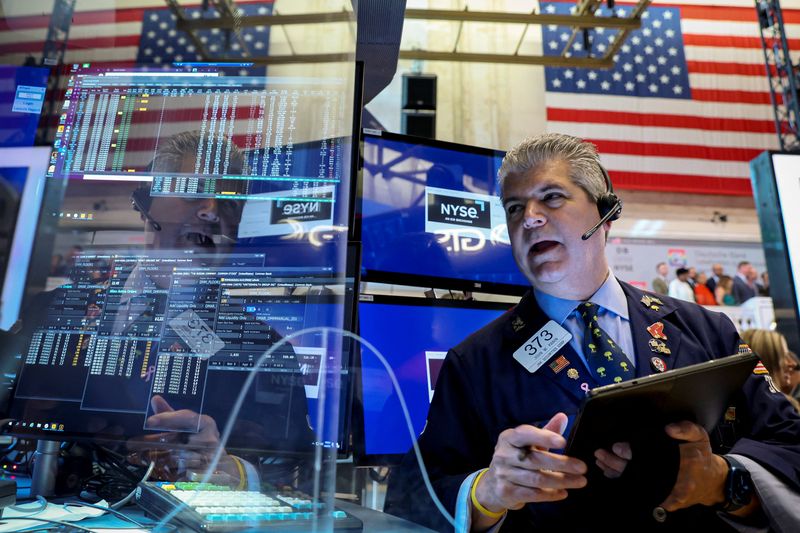A look at the day ahead in markets from Sujata Rao.
Americans shopping for July 4 barbecues will pay an average 17% more than last year for items such as burgers and lemonade, according to the American Farm Bureau Federation, an example of the brutal price pressures facing consumers globally.
Still, Jerome Powell's whatever-it-takes-style message last week may have persuaded bond markets that the U.S. Federal Reserve means business when it comes to stomping on inflation.
Five-year breakevens, a gauge of future inflation, now stand around 2.6%, a whole percentage point off April levels. And while cash Treasury bond markets are shut on Monday, futures imply 10-year yields around 2.88%, 60 basis points below June peaks.
Breakevens https://fingfx.thomsonreuters.com/gfx/mkt/jnpweodyapw/Pasted%20image%201656875811859.png
Easing inflation expectations are positive for stocks, and Wall Street rallied on Friday. But not if recession concerns are the main drivers, which many argue is the case. Note that speculators had cut bearish bets on Treasury futures even before Powell's speech, CFTC data for the week to June 28 shows.
Note too Friday's rally in Treasuries as well as Bunds, even after a record 8.6% euro zone inflation print.
Bund yields are attempting to claw higher after a 20 bps plunge that took them to one-month lows.
And not much cheer on stock markets; world stocks and a pan-European equity index are marginally firmer. Wall Street futures are down.
In all this, the dollar is again standing tall, having rallied almost 1% last week, mainly at the expense of commodity-focused peers such as the Australian dollar.
Key developments that should provide more direction to markets on Monday:
-German exports dip in May as EU demand weakens
-Israel seen raising rates by 50 bps to 1.25%
-Chinese developer Shimao misses $1 bln bond payment

-Oil prices slip as recession fears rumble on
- Kohl's (NYSE:KSS) halts talks of deal with Franchise, cites "difficult financing conditions."